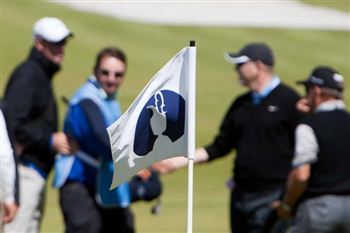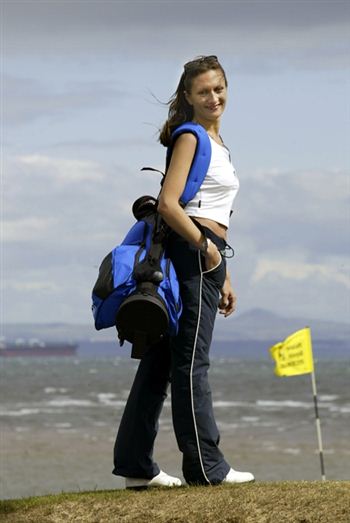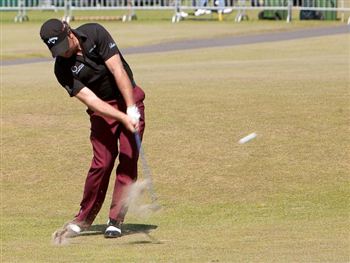SCOTS firms could be about to find themselves hit by a round of golf related sickies brought on by this year’s Open golf championships.
Not because golf fans are bunk-ering off work to watch the likes of Tiger Woods and co fighting it out at the Old Course in St Andrew’s.
But because usually desk bound amateurs will be inspired to pick up their clubs and do themselves an injury.
Four out of five hobby golfers are expected to pick up some kind of niggle or serious injury in the course of their playing days, according to research by the Chartered Society of Physiotherapy.
Now experts are warning The Open makes that risk even higher as workers take to the greens without any proper preparation.
But business leaders are calling on staff to work through the pain barrier to make sure their employer’s don’t suffer further this recession.
Inspiration
Jerry Alexander, who runs Liberty Business Centres throughout Fife – where The Open takes place – worries that workers in small businesses have no option but to “grin and bear” injuries.
He said: “The continual high profile of golf and its stars over recent years has increased the amount of inspiration for would be pros to get out of the office and tee up.
“The symptoms of sporting injuries do tend to last for a prolonged period in smaller businesses, probably because they do not find the time to seek proper advice or recuperate.

“In larger businesses there tends to be the infrastructure to cope with some employee absenteeism but more often than not small business personnel just don’t have the luxury to rest, so carry on working.”
Mr Alexander said sporting injuries can be directly linked to a business’ cashflow and deadlines, potentially causing havoc for small firms in particular.
“Serious effect”
He said: “Injuries can of course reduce the effectiveness of the individual concerned and if mobility is important in their work, it can have a serious effect on their performance and therefore income.
“I have seen examples of this in construction related businesses where surveyors and project planners find it difficult to move around construction sites.”
Golf swing scientists say desk-bound office workers can try and avoid nasty pulls through proper training.
One expert is even offering a special “Swingbuster” physiotherapy course pioneered in Scotland to targeting office-linked back pain.
The service is designed specifically to help golfers avoid agonising back injuries by training their muscles to “remember” the best swing techniques.
Kirsten Lord, founder of the Physiotherapy Centre, says improving players’ postures can get them driving straighter and further than ever before – as well as keeping them at the coalface of work.
Her studies found long spells in the office could be directly linked to the muscle problems causing golf swing faults such as slicing or hooking.

“Constant repetition of a bad swing can create muscle imbalances which strongly affect the swing path of the club and can, ultimately, lead to injury.
“However, by altering your muscle balance you‘ll find it easier to improve your muscle memory and technique.
“Very simple hands on techniques designed to loosen the middle spine in combination with exercises to increase this movement will not only improve your wind up and recoil, they improve power.”
Root of problems
The Swingbuster exercises target a golfer’s muscle memory to remove natural resistance and change the way their bodies naturally move when swinging the club.
The new research into reducing handicaps and injuries has even been endorsed by PGA professionals and the Chartered Society of Physiotherapists.
The treatment programme has also been taught as part of the PGA post graduate study programme.
Kirsten added: “Pain affects thousands of golfers every day and more than 60 per cent of golfers in the UK suffer injuries that can result in the loss of at least five weeks of the season.
“Much of this pain and angst can be avoided by taking the right precautions on the course and properly preparing for your game.
“The assessment is designed to get straight to the root of any problems you have with your technique and works in synchrony with techniques taught by your golf pro.”


